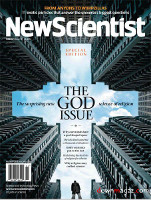









A recent University of Otago study has indicated that people who suffered sexual abuse or rape as children are more likely than others to later identify as either homosexual or bisexual.
Otago University researcher associate professor Elisabeth Wells has looked at the connection between adverse childhood events and sexuality and found those who experienced trauma were significantly more likely to be non-heterosexual. The study used results from the New Zealand Mental Health Survey, which surveyed almost 13,000 people aged over 16 between 2003 and 2004. Participants were asked whether they thought of themselves as bisexual, heterosexual or homosexual and if they had same-sex sexual experiences or relationships.
Less than one per cent of people identified themselves as homosexual, but three per cent had a same-sex encounter. Wells said the more “adverse events” experienced in childhood – including sexual assault, rape and domestic violence – the more likely the person identified with one of the non-exclusively heterosexual groups. She said most people from disturbed backgrounds were heterosexual. After all, by far most people are heterosexual. However, the study showed a clear relationship between negative events in childhood and homosexual or bisexual relationships later in life. SOURCE
What has struck me most is not the study itself which, as far as I am aware, had a fairly unremarkable method and reported on the facts as they are. What I’ve found interesting is the reaction of some people in the “gay community.” I dislike that term somewhat because it suggests that homosexuals all think alike when clearly they don’t. But when I use it, I have in mind the more outspoken and often politically involved or politically motivated self-appointed spokespeople for non-heterosexuals. That’s a pretty wordy description, so I use the less than ideal phrase “gay community” instead.
Read More



 This episode is about Intelligent Design – sort of. I don’t argue here for intelligent design. What I’m doing is looking at a couple of philosophical objections to ID which, I argue, are just contrived for no other purpose than to exclude intelligent design from “science.”
This episode is about Intelligent Design – sort of. I don’t argue here for intelligent design. What I’m doing is looking at a couple of philosophical objections to ID which, I argue, are just contrived for no other purpose than to exclude intelligent design from “science.”